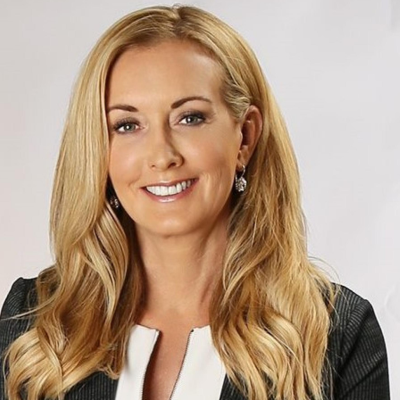An angry judge and a combative court hearing – questions raised about Syngenta’s paraquat settlement effort
Syngenta’s effort to settle thousands of lawsuits alleging its paraquat weed killer causes Parkinson’s disease may be running into a potential roadblock as some plaintiffs’ lawyers see the settlement terms as unfair to their clients.
A recent contentious court hearing in federal court laid bare some of the brewing controversy when US District Judge Nancy Rosentengel threatened sanctions against plaintiffs’ attorney Aimee Wagstaff, who the judge accused of trying to undermine the settlement plan.
A transcript of that Oct. 14 hearing offered a window into the details of the confidential settlement and the sharp divide that has emerged between groups of plaintiffs’ attorneys over the issue. Several attorneys representing paraquat users suing Syngenta have complained about the settlement plan quietly for months, unwilling to speak publicly, but protesting what they say is a bad deal for people suffering from Parkinson’s.
Wagstaff planned to hold a video meeting/webinar next month with other lawyers representing Parkinson’s victims who are suing Syngenta to discuss the potential settlement terms, which have not been publicly disclosed, and not yet even disclosed to all plaintiffs’ lawyers in the litigation.
While the terms of the settlement were negotiated between Syngenta and a small team of plaintiffs lawyers, several plaintiffs’ lawyers not part of those negotiations have said the settlement plan has many flaws. They say it appears to sharply limit who among their clients could actually recover financial damages and also provides a very small average payout.
Wagstaff’s webinar was designed to share information about the plan, including the concerns.
The move angered Judge Rosentengel, who oversees what is known as the paraquat “multidistrict litigation” (MDL) in the US District Court for the Southern District of Illinois. Rosentengel has delayed cases going forward to trial for months in order to encourage and facilitate a settlement.
More than 6,300 plaintiffs have their claims against Syngenta pending in the MDL, while more than 2,000 others have claims pending in different courts. Many plaintiffs are farmers or farm workers who claim exposure to paraquat – a widely used herbicide in agriculture – caused them to develop Parkinson’s, and that Syngenta should have warned of the risk.
Syngenta has been working to finalize the settlement plan for months, reaching agreement with a committee of plaintiffs’ attorneys leading the MDL proceedings.
In the hearing, Judge Rosentengel said Wagstaff appeared to be trying to “subvert” the settlement process and said “a lot of work went into this settlement and I want to see it move forward without people trying to attack it.”
Wagstaff responded in the hearing that her purpose was simply “to make sure that the plaintiffs’ counsel knows what’s going on…”
“There is a lot of concern in the plaintiffs’ bar, a lot, about the fact that this proposed settlement only relates to, to a fraction of the injuries that are in the MDL and that are in other — in people’s clients,” Wagstaff said in the hearing. “This isn’t going to resolve all the cases and people are concerned about that. There is grave concern over this.”
Wagstaff said the settlement appears to place undue burdens on plaintiffs, including proving a level of Parkinson’s diagnosis that would leave out many people, and strict requirements for providing proof of use of paraquat. (In some cases, plaintiffs’ use of paraquat dates back decades.)
The “values” of the settlement for plaintiffs is also a concern, she said.
Wagstaff said she should be able to share her concerns with other lawyers.
“What I want is to advocate the best, the best result for my clients. And in doing so, help other plaintiffs’ lawyers have information,” she told the judge.
The hearing was called after the judge’s special master contacted Wagstaff and asked her not to go forward with her video conference, a request Wagstaff rejected. The judge threatened sanctions against Wagstaff and called the hearing.
Ultimately, the judge did not order sanctions. It is unclear if Wagstaff will still hold her webinar.
Khaldoun Baghdadi, a plaintiffs’ attorney who sits on the plaintiffs’ leadership committee and has been negotiating the deal with Syngenta, said his team held their own webinar last month, attended by more than 200 lawyers for plaintiffs, and addressed “every question” about the settlement.
“We are committed and dedicated to obtaining fair and reasonable compensation for those who wish to obtain it,” Baghdadi said in the hearing.
Syngenta did not respond to a request for comment about the concerns over the settlement.
Paraquat was introduced in the 1960s by a predecessor to the giant global agrochemical company Syngenta, which is now a Chinese-owned entity. The herbicide has become one of the most widely used weedkilling chemicals in the world, used by farmers to control weeds before planting their crops and to dry out crops for harvest. In the United States, the chemical is used in orchards, wheat fields, pastures where livestock graze, cotton fields and elsewhere.
Syngenta has always maintained that the evidence linking paraquat to Parkinson’s disease is “fragmentary” and “inconclusive.” But numerous scientific studies have found that paraquat damages cells in the brain in ways that can lead to Parkinson’s.
Many of the company’s internal documents show it was aware of research connecting paraquat to Parkinson’s disease decades ago.
Syngenta was set to go to trial in 2021 against a group of paraquat users with Parkinson’s disease, a case in which plaintiffs’ lawyer Steve Tillery was poised to present many of those internal company records.
Just as that trial was set to begin, however, Syngenta agreed to pay at least $187.5 million to settle with the plaintiffs in that case and several others, according to a disclosure in the company’s 2021 financial statement. There have been no trials since, despite the surge in claims.
(Featured photo by Yunus Tug for Unsplash +.)




